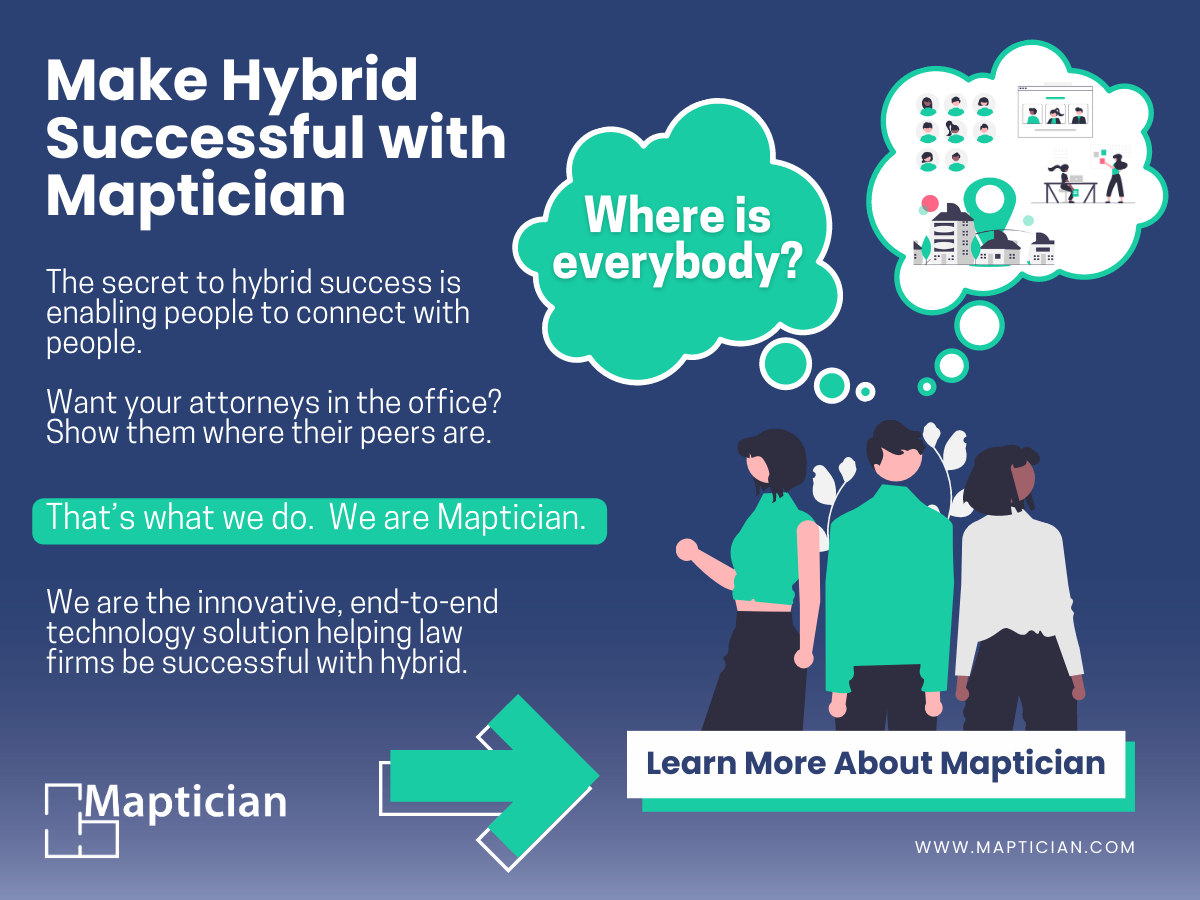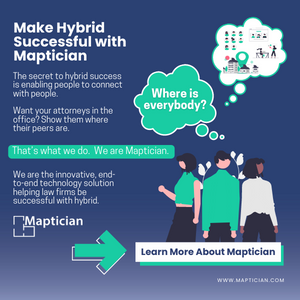When creating a DEIA-focused approach across the organization supported by programs and frameworks to implement, the retention and engagement level of a law firm’s associates will improve, and authenticity will permeate the organization in many positive ways.
Many law firms excel at prioritizing the recruitment of diverse candidates, whether diverse means gender, race or other categories. For law firms, hiring objectives are probably the most common topic accelerating DEIA discussions.
However, hiring to increase diversity levels across the firm doesn’t ensure that the firm retains those associates, especially as the industry continues to struggle with high turnover. Furthermore, in a recent Georgetown Law and Thomson Reuters Institute report, more than 900 law firm associates said those who appeared to be the greatest “flight risk” were more likely to be “women, of minority ethnicity, or from the LGBTQ+ community.” Therefore, the firm’s efforts need to go beyond hiring to include strategies that will emphasize the right practices across each stage of the associate life cycle, which typically includes attracting, onboarding, assigning cases, engaging, developing and rewarding.
AN INCLUSIVE CULTURE IS THE DRIVER OF DIVERSITY
Diverse associates need more support once they join the firm in order to ensure they feel welcomed and included. To this end, the firm must intentionally create an inclusive environment where all associates feel a sense of belonging. Consider these four ways to address some strategies throughout the employee journey to attract, engage, develop and retain associates. Included in these ideas are some of the ways that legal-specific talent management software and analytics can help manage these strategies.
1. Inclusive New Hire Integration
For a more holistic interpretation of traditional onboarding, try new hire integration — a structured program that supports new employees and prepares them sufficiently to work at the firm. Integration plans are useful to ensure that every associate who comes aboard has ample access to resources and opportunities to succeed. These plans can include introductions to the firm’s leaders and mentors as well as invitations to selected events.
Once the integration plan has been established, the firm can then monitor associates’ progress and collect feedback from both them and the team managing their integration. Employee integration software can be used for DEIA reporting and to review trends, spot potential issues, and uncover ways to make integration more inclusive and helpful to each associate.
2. Equitable Resource Allocation
Traditional law firm work allocation is usually subject to partners selecting associates to work on matters. But unconscious biases — such as recency bias, confirmation bias, proximity bias and more — can influence that process. There is an alternative way to do selection — an equitable resource allocation model, which uses objective measures (i.e., skills, competencies and goals) instead of proximity and familiarity. Using this approach, firms can expand opportunities offered to all associates for quality work/skills development.
“Diverse associates need more support once they join the firm in order to ensure they feel welcomed and included. To this end, the firm must intentionally create an inclusive environment where all associates feel a sense of belonging.”
Through technology, the firm can capture relevant data to achieve a more equitable resource allocation process. Software solutions can track associates’ billable hours and productivity standards, automatically adjusting their workload — and its composition — accordingly. Technology solutions can also aid partners in assigning diverse teams of associates to legal matters so their combined, complementary skills will benefit the client being served.
3. Health and Wellness
Health and wellness for associates should be a priority for every firm, as burnout and depression are real problems affecting the legal industry.
In December 2022, ALM’s Daily Business Review (DBR) reported that of lawyers who responded to an ALM Intelligence survey, more than 30% have felt depressed since 2019. More than half of the same respondents reported not being able to disconnect from work, feeling pressure from billable hours, lack of sleep, and client demands all contributed to a negative mental state. Of course, since March 2020, the pandemic has had a distinctly negative impact on many workers’ mental health, but this only underscores the need to overcompensate by providing support.
For associates, technology can keep track of their hours worked and gauge whether they are working multiple late nights and weekends. Firms should consider applying some flexible work models and practices where appropriate. These models can include time off if associates feel stressed or mentally exhausted, flexibility to work from anywhere for a defined period of time, or a full hybrid workstyle approach.
One silver lining of the pandemic was that firms successfully figured out how to work remotely. Keeping that flexibility available provides options for a hybrid, remote or global work location. For example, Aderant has a “Global Flexible Work” program that allows employees to work remotely from anywhere in the world for up to four weeks each year. Many employees take advantage of this program with no negative impact on their performance.
4. Unbiased Performance Management
Performance evaluation is a standard part of management, but it is susceptible to bias and can leave associates “in the dark” about their performance between evaluations. Instead, implement a continuous feedback approach, which allows for constant coaching and development conversations and eliminates that “surprise” element in the annual performance evaluation. This also ensures that associates’ annual performance evaluations fairly reflect their year’s work.
With real-time feedback software, firms can easily review evaluation and feedback history. Firms can spot trends among associates, allowing them to pinpoint and correct issues as soon as possible. Real-time feedback also identifies areas for DEIA improvement with regular check-ins on associates, including pulse surveys and self-reflections.
AN INCLUSIVE FIRM IS BETTER FOR ASSOCIATES — AND THE WHOLE FIRM, TOO!
Law firms, and almost all other companies today, are continually growing and maturing their culture to be inclusive, diverse and authentic. By being intentional and setting ambitious DEIA goals while taking concrete action to achieve them — as well as leveraging talent management software and analytics to manage their efforts — firms can nurture a diverse team of associates and create an inclusive culture that successfully develops and retains associates and helps their business grow.


